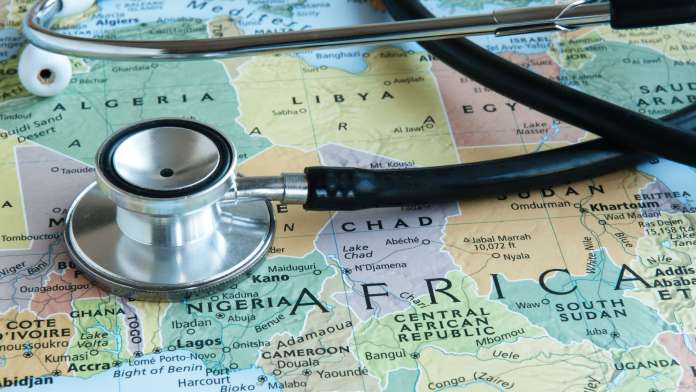African countries are being targeted by medical tourism destinations, as lucrative sources of medical travellers. But beware, many of these countries have or are bringing in universal healthcare coverage and health insurance. Just as happened in the Gulf, once a country has built up healthcare, then it stops being a source and may even become a medical tourism destination, says Ian Youngman.
Some African countries have massive oil, gas, mineral and metal deposits. Several commodities reached new historical highs in 2021 such as gold, iron ore and copper, as copper (for electrification) and nickel (for battery electronic vehicles) will see significant demand growth beyond their current applications.
Literacy is growing while there has been a boom in internet and mobile technology. Other growth areas are driven by a rocketing population growth with, as happened in the Arab world, new generations of educated mobile young people.
Many countries have or are bringing in universal healthcare coverage (UHC) and health insurance. Health insurance is essential to reduce the financial burden of purchasing healthcare by pooling funds and sharing the risk of unexpected health events.
Risk sharing mechanisms are particularly important in sub-Saharan Africa where most countries dedicate insufficient resources to healthcare and most healthcare, including medicines, are financed out-of-pocket.
In Africa, 27 out of 48 countries are significantly affected by direct out-of-pocket payments for healthcare services. The WHO Regional Committee for Africa has adopted a regional health financing strategy that recommends the development of prepayment schemes to expand health insurance cover and reduce out-of-pocket payments.
Closing this gap in access to health insurance is critical to achieve the goal of universal health care, which is to ensure that everyone has access to the high-quality healthcare services that they need, without the risk of financial ruin or impoverishment
The benefits of adequate and sustainable health insurance cover in Africa are numerous. They include improving the availability and affordability of essential medicines; increasing access to care and protecting households from the detrimental economic effects of ill-health; providing cover for in-patient care to mitigate sudden huge financial burden due to hospitalisation; ensuring greater access to essential medicines and providing an incentive for appropriate use; and advancing towards universal health coverage.
In Africa, there is significant inequity in access to health insurance, with formal workers and the rich having more access than informal workers, the poor and vulnerable groups. Closing this gap in access to health insurance is critical to achieve the goal of UHC, which is to ensure that everyone has access to the high-quality healthcare services that they need, without the risk of financial ruin or impoverishment.
Comparing 36 SSA countries, the top three countries with the highest health insurance coverage and the least inequity are Rwanda, Ghana and Gabon. These three countries all have publicly owned health insurance systems that are significantly tax funded, as opposed to dependence on voluntary contributions.
However, when an African country moves on healthcare public or private, state paid or insurance financed, it rarely does more than cover the basics.
With a huge new audience, if correctly targeted, medical tourism will increasingly see parts of Africa as having massive potential.
China and Turkey vie with Russia, Europe and the USA for soft political power in Africa, with help building railroads and hospitals. Given this, one debate for Africans is whether they should go to Asia, China, or the Gulf, or should they support fellow African countries when travelling for healthcare?








 ©2024 All rights reserved LaingBuisson
©2024 All rights reserved LaingBuisson 


